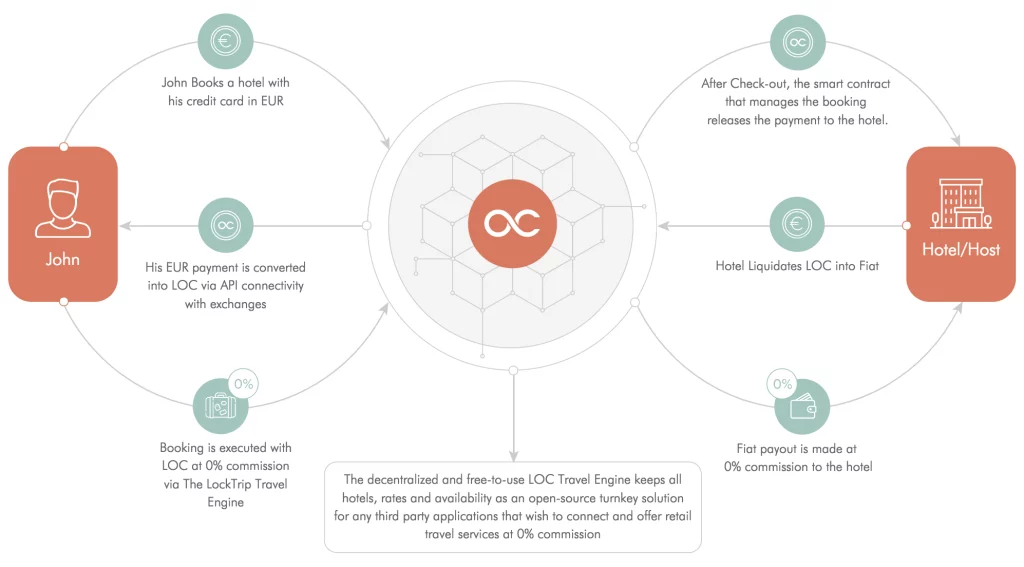Have you ever traveled through several countries and had to exchange different currencies? This requires time and preparation, and finally costs money, due to currency conversion at the beginning of the trip and back again when returning.
It is clear that we are moving towards the so-called cashless society, but for a few years now it seems that a sudden leap into cryptocurrencies is likely.
Some countries are already considering following China's example and issuing their own digital currencies (CBDC-Central Bank Digital Currencies). The difference with them is that they are not decentralized, but issued by a certain central bank.
In this article, we will look at the most innovative players in the initial use of cryptocurrencies in tourism - the travel platforms and hotels that already accept such payments. Finally, we will conclude with the obstacles to the adoption of cryptocurrencies in tourism.
The potential benefits
The potential benefits of traveling with cryptocurrencies are many and would have more added value on a longer trip involving different destinations in different countries around the world.
Some of the main benefits are as follows:
- elimination of currency conversion losses – these losses are usually taken before and after travel. If a currency depreciates during the trip, this contributes to additional losses, especially for larger amounts.
- eliminating the risk of cash theft – this is especially true for seaside resorts. You must be worried about leaving cash at the hotel or taking it with you to the beach. The good thing about resorts is that you can still pay by card.
- overcoming the lack of built infrastructure in remote places in nature - in the case of mountain hikes, you have to calculate in advance what expenses you will have for the next few days. It is a well-known fact that there are no ATMs in the mountains, and most lodges do not accept card payments, especially in Bulgaria.
Some sub-sectors in tourism can be completely transformed with the adaptation of cryptocurrencies. There is a possibility that certain travel booking platforms will issue their cryptocurrency or cryptocurrency-based token.
For example, in another sector, sports and entertainment, some football teams already have their fan tokens, which are based on the cryptocurrency Chiliz ($CHZ). Football fans can buy consumer goods (so-called merchandise) or participate in decision-making through polls based on the possession of tokens. The management of some teams run polls related to the christening of a stand or the writing of a motto on the captain's armband.

This year, two of the biggest crypto travel sites announced their merger – travala.com and travelbybit.com. The former has built a huge portfolio of accommodation, and the strength of the latter is partnership with airlines.

Travelbybit is an Australian startup that was funded by Binance in 2018. Binance, on the other hand, is a platform for storing and trading various cryptocurrencies, which in the same year reached a market value of 1 billion dollars. This merger enables synergy between two major tourism sub-sectors.

Interestingly, cryptocurrency travel booking platforms also have a Bulgarian representative, which is called locktrip.com. LockTrip has its own token ($LOC) based on the Etherium Blockchain that can be used when booking at over 2 million hotels and over 1000 airlines. And here there is a connection with an Australian company - at the end of March 2021, the online travel agency Webjet invested $4.1 million in LockTrip, with a clause for a second tranche of another $4.2 million.
However, there is still a long way to go before mainstream adoption of cryptocurrencies in travel.
Difficulties
Some of the main obstacles are as follows:
- Large swings in price over a short period of time – there is a risk that by the end of the journey a cryptocurrency has devalued drastically and this leads to a lack of predictability. For this reason, some of the travel booking platforms also accept the so-called stable coins.
- Clumsiness in mass adoption of payments in various tourism sub-sectors – a lot of joint efforts are needed to make payments widely adopted in various sub-sectors such as travel agencies and tour operators, accommodation, transport and others.
- Risk of government level regulations in different countries - Corporations have an interest in obtaining the valuable information on how funds move around the world and use it for their own benefit. The problem is that a country does not want to provide such information, especially to a corporation from another country. 2 months ago, China banned banks and online payment channels from offering services to their customers related to the registration and trading of cryptocurrencies. Last week, the Binance platform was banned in the UK. The state regulator FCA (Financial Conduct Activity) has indicated as the reason, the lack of possibility to prevent money laundering related to cyber attacks.
The next few years will be quite dynamic for hotels. More and more of them are expected to accept cryptocurrency payments directly, without intermediaries - sites that are travel platforms. Instead, there will be more and more partnerships with cryptocurrency exchanges.
Hotel chains that accept cryptocurrencies
There are currently 2 hotel chains that accept cryptocurrencies.

These are Kessler Collection and The Pavilions Hotels & Resorts group. Kessler Collection has partnered with Bitpay, and boutique hotel chain The Pavilions will partner with Coindirect.
Competition in the field of Fintech companies is also growing – they are adding more and more functionalities and international coverage. Except Revolut, another company gaining momentum in Europe is Curve. It's a digital wallet, but like Revolut, it also offers plastic (as well as a metal card plan). Depending on the monthly plan, Curve offers ATM withdrawals abroad without a withdrawal fee up to a certain monthly limit (EUR 200 per month/EUR 400 per month/EUR 600 per month), excluding weekends. Although they seem low for now, especially for people living abroad, these limits will most likely be increased over time.
It will be exciting to see in the near future which payment method will gain mass adoption by people who travel frequently around the world - a platform for booking trips with your cryptocurrency or token; hotels that accept cryptocurrencies through exchanges; or a fintech company that offers more and more functionalities.
People are looking for practical solutions to their problems, and in the long run, the option that offers clear and simple solutions will win. There is also a high probability that it will be not just one, but a combination of different variants. In any case, we will follow with interest the development of payments in the field of tourism.



